 Abengoa
Abengoa
Annual Report 2009
- Corporate Social Responsibility Report
- Abengoa and the Community
- Our Social Policy
Abengoa has embraced a commitment to growing alongside the communities in which it operates, fostering the creation of ties that reinforce the company’s long-term relationship with society, while abiding by and promoting human rights in its sphere of influence.
Company development cannot be approached from the standpoint of economic growth alone, but rather must integrate the perspectives of its members, endeavoring to guarantee them the potential to pursue a rewarding life. Abengoa believes that the success of its social action lies in its dialogue with company stakeholders: taking their expectations into account when drawing up strategy and executing activity through a process of fluid communication among equals in order to establish a close relationship based on trust and collaboration between the company and society, thereby enabling us to progress together towards a sustainable future for all.
Abengoa upholds a genuine commitment to society in the communities in which the company operates, a commitment that materializes in clear and transparent communication between the company and society, striving for shared growth and promoting actions that lead to progress.
With the fundamental aim of helping to meet general needs through a multidisciplinary approach, the Focus-Abengoa Foundation, established in 1982, is the instrument through which the company interacts with society beyond its business activity.
Abengoa pursues mutual progress for the company and the community by developing and promoting initiatives that contribute towards balanced growth and to reinforcing the ties that bring the company and society together. Under this premise, the Focus-Abengoa Foundation channels its general efforts towards serving the community into five major areas: aid and assistance, culture, education, research, and employee social action.

Social action initiatives performed by Abengoa and its business groups over 2009.
More information in Appendix B
Aid and Assistance
Abengoa is unflinchingly committed to society, particularly in the communities in which the company operates, and therefore has pledged to grow alongside and through them, to create ties that strengthen the company’s long-term relationship with society, while fostering respect for human and environmental rights in the company’s sphere of influence.
Abengoa’s commitment to society, sustainable development and the environment underlies all of its activities and is manifested in a quite unique way through the Focus-Abengoa Foundation.
The foundation shapes its social initiatives with participation from the members of the communities in which it conducts its activities, following a process of analysis and assessment governed by the internal norms defined for the realm of social action. There is intensive involvement in underprivileged areas with high poverty rates, in an attempt to respond to the different needs that arise in these communities. To this end, the situation is appraised beforehand in order to render the initiative more effective and subsequently carry out assessments to determine the effectiveness of the measures proposed.
Among the many aid and welfare programs carried out by Abengoa, project highlights include the following:
Argentina
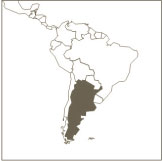
In Argentina, the Focus-Abengoa Foundation has been working with the Hermanas de la Cruz (Sisters of the Cross Congregation) for 42 years, and since 2005 Foundation involvement has been conducted through the Un Derecho de Todos (A Right for Everyone) Educational and Body Exercises program (EBE), involving direct and ongoing programs that target the most vulnerable social groups, meaning those living in conditions of poverty, inequality or discrimination. Particular emphasis is placed on the following people:
- The disabled
- Children and teenagers in situations of social risk.
- Young and adult women who have yet to complete their primary or secondary studies.
The Focus-Abengoa Foundation carries out its activities at three different centers, located in Quimilí and Monte Quemado, in the province of Santiago del Estero, and in Alderetes, in the province of Tucumán. The core objective of the EBE program is to improve quality of life for the people living in the communities where Abengoa operates by pursuing integration, participation and social equality for those who are most vulnerable.
To this end, the Focus-Abengoa Foundation works towards:
- Laying the foundations for dietary and nutritional education.
- Improving quality of life for large indigent families, paying special attention to children and the disabled.
- Devising mechanisms for improving local surroundings and basic services.
- Implementing social and educational practices.
- Building universally accessible places.
- Encouraging children’s sports for pedagogical purposes and as a means of achieving integration.
- Enabling neighborhood meeting points for dealing with local issues (neighborhood association, basic services, and environmental protection).
- Setting up technical training sites for young men and women from disadvantaged social backgrounds and creating sheltered work for the disabled.
Peru
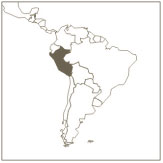
In Peru, the Focus-Abengoa Foundation has been working in collaboration with the Hermanas Josefinas de la Caridad (Josephine Sisters of Charity Congregation) since 2006 in the city of Comas, where the foundation supports the Madre Caterina home for the elderly, and also in the city of Chiclayo, where social action focuses on the Santa Ana day care facility. In 2009, implementation of the Educational and Body Exercises (EBE) program got underway through the deployment of task forces in each of the cities where the Josephine Sisters conduct their work. The foundation is also active in Manchay, where collaboration has been initiated with the parish of this settlement. Social action is focused on implementing practice sessions, seminars and events involving education, aid and assistance, and occupational training.
The ultimate aim of Abengoa’s project in Peru is to enhance quality of life for:
- Children with unfulfilled basic needs.
- The disabled.
- Senior citizens.
In order to achieve the general goal of the EBE program in Peru, the Foundation is working on the following:
- for dietary and nutritional education.
- Improving quality of life for people in situations of vulnerability, especially geared towards children, the disabled, and senior citizens.
- Fostering human capital by developing skills and abilities for securing a better future.
- Including other national programs and projects in online work.
- Creating universally accessible places.
- Implementing social and educational practices intended for these places.
- Enabling places for institutional and neighborhood gatherings to address local problems (school for parents, neighborhood association, basic services, and environmental protection).
- Building institutional and community awareness of the vulnerability of the rights of groups at social risk.
Chile
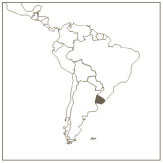
In Chile, since 2007 the Focus-Abengoa Foundation has been working together with the “Un Techo para Chile” (A Roof for Chile) organization, born in 1997 as a project for building emergency homes for families living in extreme poverty in southern Chile.
The aim of this organization is to provide decent housing for people living in Chilean camps in severe poverty, in addition to providing these people with ways to overcome this situation, through education, granting micro-loans, building libraries and community organization.
Abengoa works with this organization in order to improve the quality of life of people living in extreme poverty in encampments.
To achieve this, the Foundation, acting through Abengoa Chile, provides volunteers for building emergency shelters in communities where the company operates. Since the beginning of its involvement with A Roof for Chile initiative, Abengoa has built seventeen homes, five of which were constructed in 2009.
Brazil
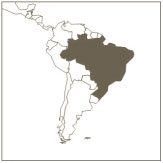
Over the years, the Foundation has undertaken specific social initiatives in Brazilian communities where Abengoa operates in order to respond to the needs of the population.
In 2009, Abengoa Brazil set up a specific Corporate Social Responsibility department which, among other things, will formalize and structure the initiatives carried out to benefit these communities, establishing ongoing programs and systems for evaluating the impact of the actions implemented.
Abengoa Brazil is presently developing the ARCA project, which will aim to:
- Assist people in need.
- Respect the environment in order to create a sustainable world.
- Cooperate towards enhancing child development.
- Support Brazil’s cultural and sports programs.
In addition, in 2009 the Foundation undertook the following actions, among others, through Abengoa Brazil: “Café de manhã solidario” campaign to collect food, hygiene products and medicine for victims of the heavy rains that fell in the state of Maranhão at the beginning of the year; sponsorship of the “Escola Sociais Novos Talentos do Surf” project; and support of the Associação Protetora de Animais Silvestres de Assis (APASS), by building three hatcheries for treating injured and mistreated birds, which will also serve to provide information and heighten awareness on environmental protection.
Mexico
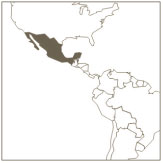
Through Abengoa Mexico, the Focus-Abengoa Foundation is working in conjunction with the Infantil Guadalupano, A.C. children’s care home, an organization that takes in children, especially those at social risk, to reintegrate them into society through global education and social assistance.
Over the course of 2009, Abengoa México staged the VIII Annual Conference for Reforestation, which involved the plantation of 2,000 trees in the Desierto de los Leones National Park, thanks to the impartial participation of over 200 people, employees and family members and 65 children from the Guadalupano children’s home.
Abengoa also rolls out a host of different initiatives in the communities surrounding its waste treatment plant in the Mexican municipality of Zimapán. This is channeled through the ACZ Apoyo Comunitario Zimapán Foundation (ACZ), an organization created specifically for this purpose.
The main social problems in Zimapán are migration, both to cities and to nearby countries, such as the United States; lack of employment and opportunities within the region; illiteracy; widespread difficulty in obtaining technical and professional training; all coupled with a shortage of funding, which is dragging back productive activities, as reflected by the practically non-existent transformation of products. Over 2009, the company staged numerous training workshops and implemented projects focusing on production, such as the construction of greenhouses and land conditioning for cattle raising.
Spain
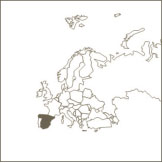
In Spain, the Focus-Abengoa Foundation focuses its efforts primarily on care for the elderly.
Senior citizens represent a fundamental pillar of our society; hence, the need to provide them with proper care. To this end, Abengoa, through the Focus-Abengoa Foundation, worked together with the Society of Jesus on the construction in 1991 of the San Rafael Home for the Elderly, a building that currently accommodates 60 senior citizens in the city of Dos Hermanas outside Seville.
Each year, Abengoa works with the La Milagrosa Residence, a home for the elderly in San Roque, Cádiz, helping to maintain, improve and modernize the center’s facilities. In addition, the Focus-Abengoa Foundation and the La Milagrosa foundation, in San Roque (Cádiz) signed an agreement to promote welfare activities for senior citizens, professional training for young adults and the unemployed and social cooperation with the most underprivileged groups of society.
Both the San Rafael charitable foundation and the La Milagrosa foundation are served by the congregation of the Josephine Sisters of Charity, the religious institution associated with Abengoa in Peru.
Case Study
Sierra de Capivara Park, Brazil
In 2009, Abengoa Brazil supported the initiative to help conserve the Sierra de Capivara National Park, included on the UNESCO World Heritage list.
Located in the state of Piauí, the park encompasses sites of both archeological and paleontological interest. Its 214 square kilometers boast one of the world’s finest examples of cave painting, as well as one of the oldest pottery collections in America.
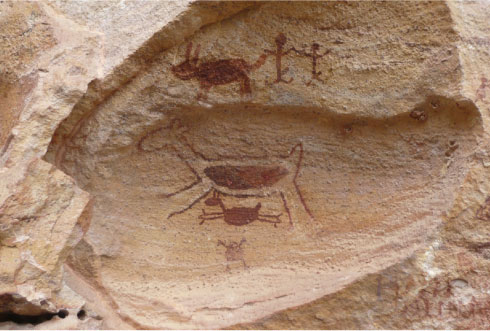
In this region, where the city of São João de Piauí is located, there is a segment of the ATE II power transmission line, one of Abengoa’s substations and part of the National Park. The conservation project for this environment represented a tremendous opportunity for Abengoa Brazil to serve the local community and the environment at the same time, by creating work and by conserving one of the country’s richest ecosystems.
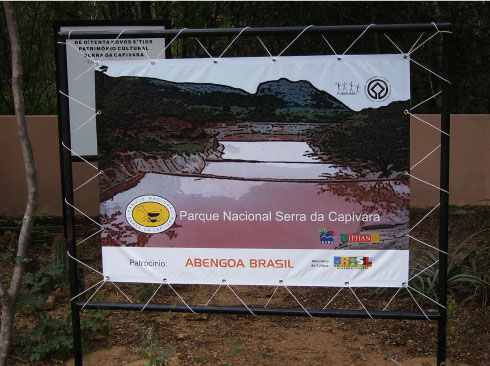
For park maintenance, FUMDHAM (Fundação Museu do Homem Americano), a non-profit scientific and philanthropic entity associated with IBAMA (Instituto Brasileiro do Meio Ambiente e dos Recursos Naturais), developed the Serra de Capivara National Park Management Plan, requiring support from companies such as Abengoa in order to put the plan into practice.
The primary objective of this project was to restore ecological balance through initiatives involving conservation, maintenance, surveillance and disclosure of the archeological sites located in the area.
The project is divided into two main points:
- Recovery of areas affected by erosion.
- Social action geared towards community orientation and integration.
The general objectives are as follows:
- Preserving the park’s natural heritage and culture.
- Recovery of areas affected by rain and erosion.
- Protecting natural and cultural wealth.
- Maintaining infrastructure.
- Analysis and conservation of the collections obtained through research work.
- Regional economic development through the creation of direct and indirect employment.
- Promoting tourism.
- Maintaining and boosting the proportion of female staff working in the park.
Sierra de Capivera National Park conservation would not have been possible without simultaneous efforts to integrate the local population. The main beneficiaries of this activity are the members of the São Joan de Piauí community.
The following highlights are noteworthy among the results obtained:
- Creation of more than 163 permanent jobs.
- Creation of more than 100 temporary positions for carrying out specific park activities.
- Reforestation of areas affected by the heavy rains.
- Creation of environmental and heritage awareness departments.
- Staging of handicraft fairs.
- Artistic and cultural representation of local groups.
- Activation of the regional economy and socio-cultural development.
2009 Milestones
- Development of Protected Workshops for the disabled as suppliers to Teyma Abengoa (Argentina).
- Implementation of the “Voluntades… se buscan” (Looking for volunteers) program. Sponsored by Teyma Abengoa (Argentina) employees for children with problems regarding the continuation of their education.
- Regional expansion of the EBE program to include Peru: at the Madre Caterina senior citizens’ home in Comas, the Santa Ana daycare center in Chiclayo and the special education Virgen del Rosario school in Manchay for people with disabilities and at social risk.
- Implementation of the “Familia y Calidad de Vida” (Family and Quality of Life) project in Monte Quemado. Construction of homes and social and academic monitoring.
- Expansion of the Educational and Body Exercise program to include the city of Tintina (Argentina).
- Teyma Abengoa (Argentina), for the second consecutive year, received the “Solidarity Entrepreneur” award from the Foro Ecuménico Social forum.
- Development of the ARCA project in Brazil.
- Sierra de Capibara National Park Conservation (Brazil).
- VIII Annual Conference on Reforestation, with 2,000 trees planted in the Desierto de los Leones National Park in Mexico.
- “Café de manhã solidario” campaign for victims of the heavy rains in the state of Maranhão (Brazil).
Abengoa committed to growing alongside the communities in which it operates